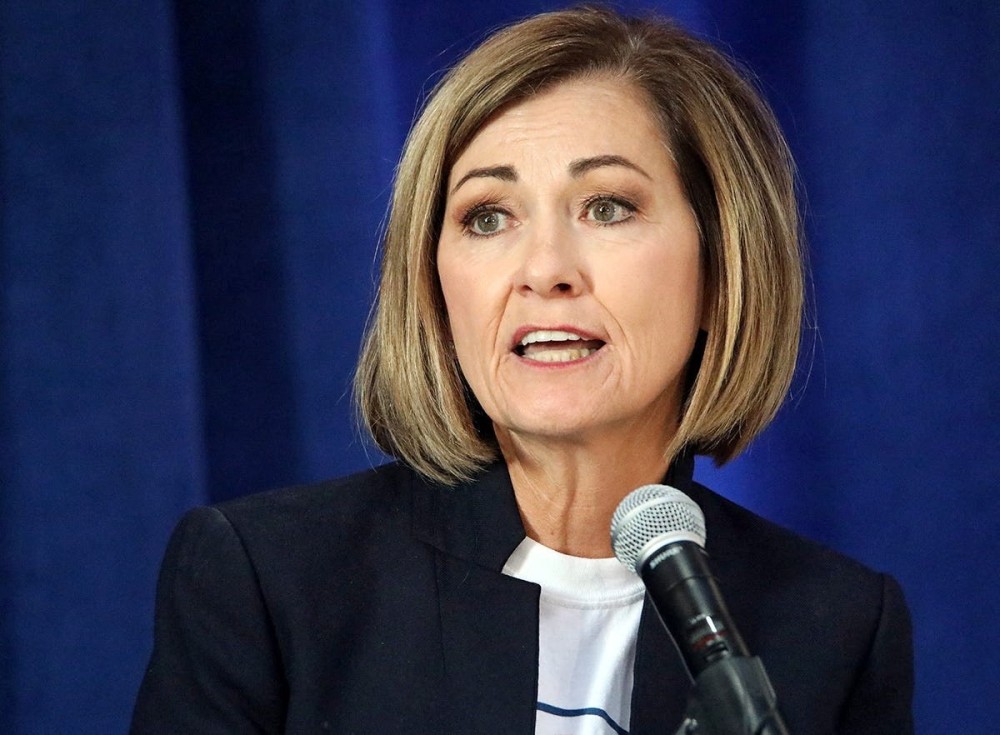
WASHINGTON — Iowa Gov. Kim Reynolds signed a Religious Freedom Restoration Act April 2 that grants state-level protections similar to the federal legislation of the same name, known by its acronym, RFRA.
Iowa is now the 26th state with this law in place, following just behind Utah, whose governor signed a similar law March 21. The law allows state citizens to challenge government regulations they believe interfere with their religious beliefs.
Reynolds signed the measure at a private dinner hosted by The Family Leader, a conservative Christian organization. The state House and Senate passed the bill in February.
“Thirty years ago, the Religious Freedom Restoration Act passed almost unanimously at the federal level,” Reynolds said in a statement. “Since then, religious rights have increasingly come under attack. Today, Iowa enacts a law to protect these unalienable rights,” she said, adding that it joins more than two dozen other states that have similarly done this, “upholding the ideals that are the very foundation of our country.”
Opponents of the Iowa law say it could be used to justify discrimination against LGBTQ+ people by denying them medical care, housing, or other services. In a statement, Courtney Reyes, executive director of the LGBTQ+ rights group One Iowa Action, said the law will allow broad religious exemptions to otherwise generally applicable laws.
The law says that state and local governments shall not “substantially burden” someone’s exercise of religion unless it is in furtherance of a compelling government interest and the least restrictive means of pursuing that interest.
A person, corporation, church, foundation, or other entity whose exercise of religion has been burdened can go to court to seek damages or other means of redressing the harm against them.
Greg Chaufen, a legal counsel at Alliance Defending Freedom, said in a statement that the law “provides a sensible balancing test for courts to use when reviewing government policies that infringe upon the religious freedom rights of Iowans.”
He said the law “doesn’t determine who will win every disagreement, but it does ensure that every Iowan — regardless of their religious creed or political power — receives a fair hearing when government action forces a person to violate his or her religious beliefs.”
Chaufen credited the Iowa lawmakers and the governor “for enacting this important legislation and setting the stage to ensure that freedom of religion is protected for everyone.”
The Iowa law is on the heels of other recently passed state laws in West Virginia and Idaho designed to grant religious freedom protections in their states.
West Virginia’s new law stipulates that campuses cannot discriminate against faith-based groups, and Idaho’s law protects the religious rights of faith-based adoption centers and foster care homes.
